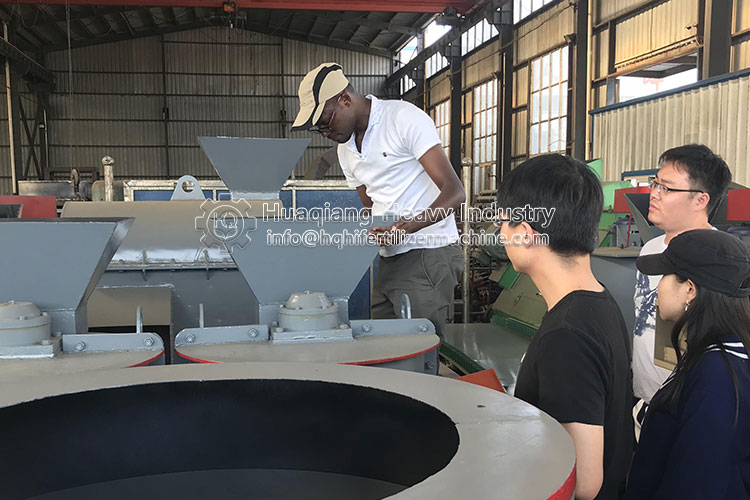Compound fertilizer
Compound fertilizer refers to the fertilizer processed by NPK fertilizer production line, which contains at least two of the three nutrients of nitrogen, phosphorus and potassium.
Advantage:
1. There are many kinds of nutrients and high content of active ingredients.
2. The fertilizer granulator combines a variety of nutrients to make solid particles, which are relatively solid, dust-free, uniform in size, small in moisture absorption, and easy to store and apply.
3. Low production cost, saving transportation cost and packaging materials.
4. Save fertilizer labor.
5. Less by-products.
Disadvantages:
1. The nutrient ratio of compound fertilizer is relatively fixed, which is difficult to meet the different requirements of various soils and crops;
2. The location and release rate of nutrients in compound fertilizer are difficult to fully meet the special requirements of crops for nutrients in a certain period;

Biological organic fertilizer
Bio-organic fertilizer refers to a kind of specific functional microorganisms and organic materials mainly derived from animal and plant residues (such as livestock and poultry manure, crop straws, etc.), which have been harmlessly treated and decomposed. Finally, they are made by organic fertilizer production equipment. This kind of fertilizer has the effects of both microbial fertilizer and organic fertilizer.
Advantage:
1. There are a lot of beneficial microorganisms in bio organic fertilizer, on the one hand, it can provide various active substances for plants to promote the growth of alfalfa, on the other hand, it can symbiosis with nitrogen fixing bacteria in the rhizosphere of alfalfa, on the other hand, it also has the function of dissolving phosphorus and potassium, which can convert the elements that can not be used in the soil into soluble substances that can be absorbed by plants.
2. Improving the enzyme activity of the soil is conducive to improving the absorption, buffering and stress resistance of the soil; increasing the organic colloid in the soil, cementing the soil particles to become a stable aggregate structure, improving the physical, chemical and biological characteristics of the soil, and improving the soil water conservation, fertilizer conservation and permeability.
3. Create a good soil environment for plant growth.
Bio organic fertilizer is completely harmless to plant growth, but its effect is slower than that of compound fertilizer. The combination of the two is more beneficial to plants.
